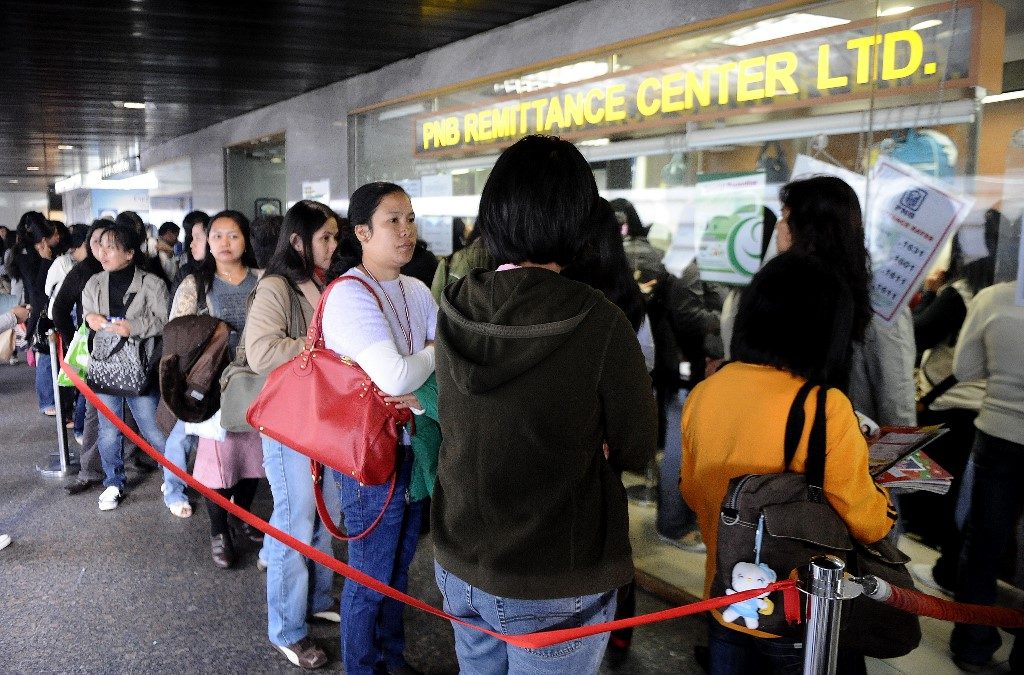SUMMARY
This is AI generated summarization, which may have errors. For context, always refer to the full article.

MANILA, Philippines – Despite political uncertainties across the globe, personal remittances from overseas Filipino workers (OFWs) reached a record high of $33.5 billion in 2019, 3.9% higher than the $32.2 billion recorded in 2018.
The Bangko Sentral ng Pilipinas (BSP) said on Monday, February 17, that sustained growth of personal remittances during the year was driven by land-based workers with work contracts of one year or more, who sent a total of $25.6 billion, 3.5% higher year-on-year. (READ: OFW remittances hit all-time high, but families still run out of cash – study)
Personal remittances from sea-based and land-based workers with work contracts of less than one year sent a total of $7.1 billion, 6.5% higher than the $6.7 billion in 2018.
Remittances from countries in Asia, the Americas, and Africa posted growth, but inflows from the Middle East slowed down by 9.8%.
Inflows were mainly from the United States, which accounted for 37.6%, followed by Saudi Arabia, Singapore, Japan, United Arab Emirates, United Kingdom, Canada, Hong Kong, Germany, and Kuwait.
OFW money boosted household income and consumption last year, accounting for 9.3% of the gross domestic product and 7.8% of the gross national income.
“Remittances provide a steady stream of foreign exchange to help offset the widening trade gap and limit the current account deficit. Together with business process outsourcing receipts, OF (overseas Filipino) remittance flows augment domestic wages, translating into potent purchasing power to fund household consumption, and even capital formation,” said Nicholas Mapa, senior economist of ING Bank Manila.
However, Mapa noted that the spread of the novel coronavirus may pose a risk to remittances in 2020, as it may affect deployment and actual work of Filipinos abroad.
“The outbreak also forces people to go into quarantine or affects consumption patterns which could have an adverse impact on the services industry, where most OFs are employed,” Mapa said.
“The recent plight of cruise ships around the world will likely put pressure on cruise liners and the hospitality industry as a whole, making it difficult for Filipinos to send home remittances should their salaries be curtailed or they lose their jobs altogether,” he added. (READ: 16 more Filipinos infected on Japan cruise ship) – Rappler.com
Add a comment
How does this make you feel?
There are no comments yet. Add your comment to start the conversation.